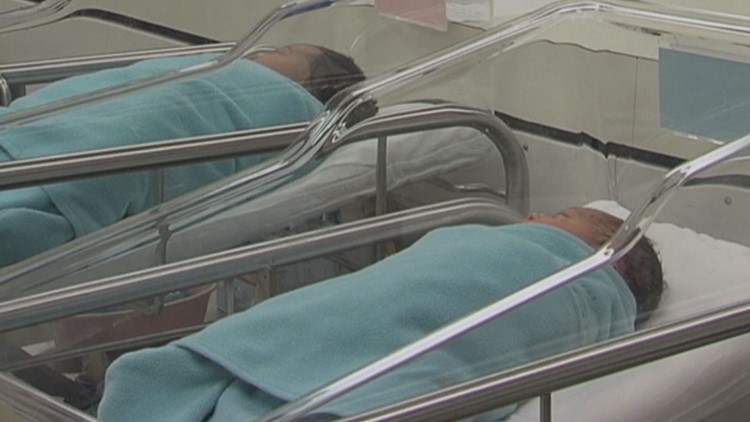ST. LOUIS — March of Dimes released their findings of premature births across the country and the results are grim. The statistics, released Thursday, show more babies are being born prematurely.
Dr. Ebony Carter, a Maternal Fetal Medical Physician at Barnes-Jewish Hospital, knows all too well the number of women whose babies are born early.
Premature births are defined as prior to 37 weeks. In the last three years, numbers across the country have gone up. Last year, 10.6% of babies were born prematurely in Missouri. That earned the Show-Me State a D and the city of St. Louis County got an 'F.' Those statistics skyrocket among African American women. According to the March of Dimes, they have a 52% higher rate of giving birth early than any other women.
Illinois also received a 'D' rating. Cook County had the highest rate of premature births and received a D rating.
Dr. Ebony Carter said, “We try to get down to the cause but often times we just don’t know.”
Director of Maternal-Child Health for March of Dimes in Kansas and Missouri, Ellie Brent, said not having enough access to proper healthcare is a key factor, as is lack of education and socioeconomics.
Dr. Carter became one of those statistics herself when she gave birth to her first child five weeks early. She said she was working a long shift when she went into labor.
“I felt so conflicted because my professional mind knew exactly what had happened. The part of me that was a new expecting mother that wanted the best for her child that she hasn’t met, was terrified,” said Dr. Carter.
Her husband, Dedric Carter, said, “I got on the phone with her, she said are you ready to be a dad. And I said sure. Philosophically I had been thinking about this and she said no today.”
Dr. Ebony said their daughter struggled when she was first born.
“She had a lot of trouble gaining weight and feeding,” said Dr. Carter.
Children born prematurely are prone to many complications later in life such as slower learning, slower growth, and even social problems, according to Brent.
Brent said this isn’t a problem that falls at just health providers. She said it has to be a community effort.



